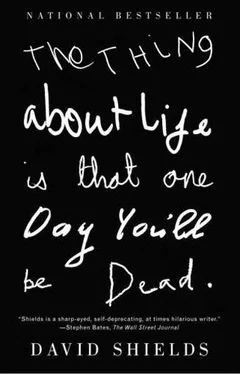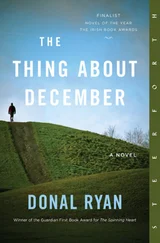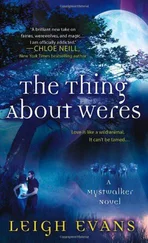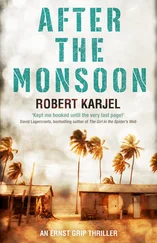Assigned to write an essay on his favorite sports team, he wrote, “I swore undying loyalty to the Brooklyn Dodgers when I was 8 or 9, maybe even younger. Looking back over the bridge of many years, it seems to me I took up my allegiance for the Dodgers with my mother’s milk. My feelings for the team ranked one emotional peg below what I felt for my family.” Just as the walls of my childhood bedroom were covered with pictures of the Los Angeles Dodgers, his were covered with pictures of the Brooklyn Dodgers. Zack Wheat. Dazzy Vance. Wilbert Robinson. His essay continued:
Ebbets Field, where they played, was the temple, and baseball—which they played at times with heartbreaking inefficiency—was a secular religion for me.
I learned the Dodgers’ lineup before I mastered the ABCs. And I became skilled at keeping an intricate scorecard before I could handle numbers in the classroom. Just a matter of priorities.
To give you an idea of the kind of fan—make that nut—I was: During the season, I would rush to the door of our apartment at 6 in the morning to grab the
New York World
to find out how the Dodgers had made out the day before. If they won, I’d be all smiles, sing a little song quietly so as not to wake the rest of the family, but if they lost, I’d sit at the kitchen table and sob. My sobs would be heard by my father, who would get up and try to comfort me.
“Milt,” he’d say, putting his arm around me, “who are these Dodger people you’re carrying on about? Why do you take it so hard? What happened—did somebody die?”
“You don’t understand, Pop,” I’d say through my tears. “They’re my team.”
“Whaddya mean, your team? They’re not related to us, right? No, they’re a bunch of strangers. You’ve only seen them once when your brother Abe took you to a game. Like I said, nobody died, the rent is paid, and everybody is in good health, thank God.”
Usually by this time my mother would get up to begin preparations for breakfast for the family. “Leave him alone, Sam,” she’d say. “He’ll get over it. Today it’s the Dodgers,” which my mom pronounced to sound like “Deitches”—which, freely translated, is “Dutch,” or “German,” in Yiddish. “Tomorrow it’ll be something else.”
I didn’t get over it, as my mom predicted, until I was 21 and other things claimed my loyalty and passion: girls, the trade union movement, journalism.
But before I gained some perspective and finally realized “it was only a game,” I suffered; oh how I suffered: my beloved Brooklyn Bums, as they were affectionately called, lost more of them than they won. In the middle of a Dodger losing streak, I’d ask myself why God, in His infinite wisdom, didn’t make me a Yankee fan.
He moved to Los Angeles in 1946, and apparently while my mother was suffering blackout spells during a late summer heat wave in 1955, he flew back to New York, ostensibly to attend his father’s 85th birthday party but, more particularly, to attend the World Series and, even more particularly, watch the Dodgers finally beat the Yankees and, more particularly still, watch Jackie Robinson steal home under Yogi Berra’s tag. I have my father’s pictures of press row at Yankee Stadium. Look at the snap-brim hats.
In our family mythology, this flight of my father’s was always painted in the darkest of colors, and yet when I was a child I, too, would look first thing each morning at the box scores, then cry ickily into my cereal if the Dodgers had lost. I remember defacing my Ron Perranoski baseball card when he failed to hold a huge lead going into the ninth, pushing over my grandfather’s television set when it broadcast Dodger right fielder Ron Fairly’s misplay of an easy flyball into a home run over the low right-field wall at Dodger Stadium, engaging in a weird sort of mock-Ophelia thing at the beach after the fiasco of the 1966 Series against the Orioles. What was this obsession we had with the Dodgers? “For me, it comes out this way,” my father wrote me the week after this Father’s Day visit. “I wanted the Dodgers to compensate for some of the unrealized goals in my career. If I wasn’t winning my battle to succeed in newspapering, union organizing, or whatever I turned to in my wholly unplanned, anarchic life, then my surrogates—the nine boys in blue—could win against the Giants, Pirates, et al. Farfetched? Maybe so. But I think it has some validity. In my case. Not in yours.”
Oh, no; not in mine; never in mine.
Although the Kingdome (since demolished) had, even by ballpark standards, notoriously bad food, we decided to stand in line at the concession anyway, not because we were so hungry but because we needed something to do while a wave was going around the stadium. My father and I both got a hot dog and a beer, and we shared a bag of peanuts—which came to an amazing amount of money, for a meal my father said had the nutritional quotient of a resin bag. To my father’s astonishment, I topped off this indigestible dinner with a chocolate malt, which looked almost purple and tasted as bitter as coffee. We returned to our seats. The wave was still rising and falling, or maybe it was a new wave.
Sixty years before, he was a sports stringer for the New York Journal-American; now he was covering the Little League, Pony League, Colt League, men’s fast-pitch softball, and women’s softball for a suburban weekly. Three days before he came up to visit, he was trying to take a photograph of a Little Leaguer stealing third base and the catcher’s throw hit my father in the ankle, breaking three blood vessels. He was proud of his bruised ankle and he kept showing it to me, repeatedly reenacting the scene, saying with a sportswriter’s mix of hyperbole and mixed metaphor, “It blew up like an egg.”
He always used to send me the column he wrote for his tennis club newsletter. This was by far my favorite lead: “A hundred members and guests attended the annual Tennis Club meeting and, to coin a forgettable phrase, a helluva time was had by all and sundry. (Especially Sundry, who seemed to be having the time of his life.)” When I’m in certain moods, this Borscht Belt humor can completely convulse me.
Just as in order to express some sort of vague rebellion we didn’t stand up during the National Anthem, during the seventh-inning stretch we didn’t stretch, either, although I couldn’t help but watch the “full-matrix scoreboard,” which was flashing images of fans stretching. All 15,000 fans in the Kingdome were watching the scoreboard, waiting to find out whether they were beautiful enough to be broadcast, since virtually without exception the images were Pacific Northwest–perfect: sleepy babies wearing Mariners caps, energetic grandparents, couples kissing. The moment people were shown, they pointed at the screen, then they pointed at themselves pointing at themselves on the screen, then everyone pointed at them pointing at themselves pointing at themselves on the screen. I continued looking at the scoreboard, wanting my chance to point at myself pointing at myself on the screen, and then I looked over at my father, who hadn’t been watching the screen at all. He was tidying up his scorecard. He was no longer looking to be lifted onto an empyrean matrix; he just wanted to eat strawberries and cream at Wimbledon the summer of his 80th birthday. (He never went.)
“Presley, Martinez, and Vizquel coming up for the Mariners,” he said, and we went to the bottom of the seventh.
Between the ages of 55 and 64, men are twice as likely as women to die in car accidents and four times as likely to commit suicide. Losing a job, separating from my mother, battling manic depression, my father would sometimes threaten that he was going to drive to the Golden Gate Bridge and jump off, but the threat never seemed real: he’s a survival machine.
Читать дальше












